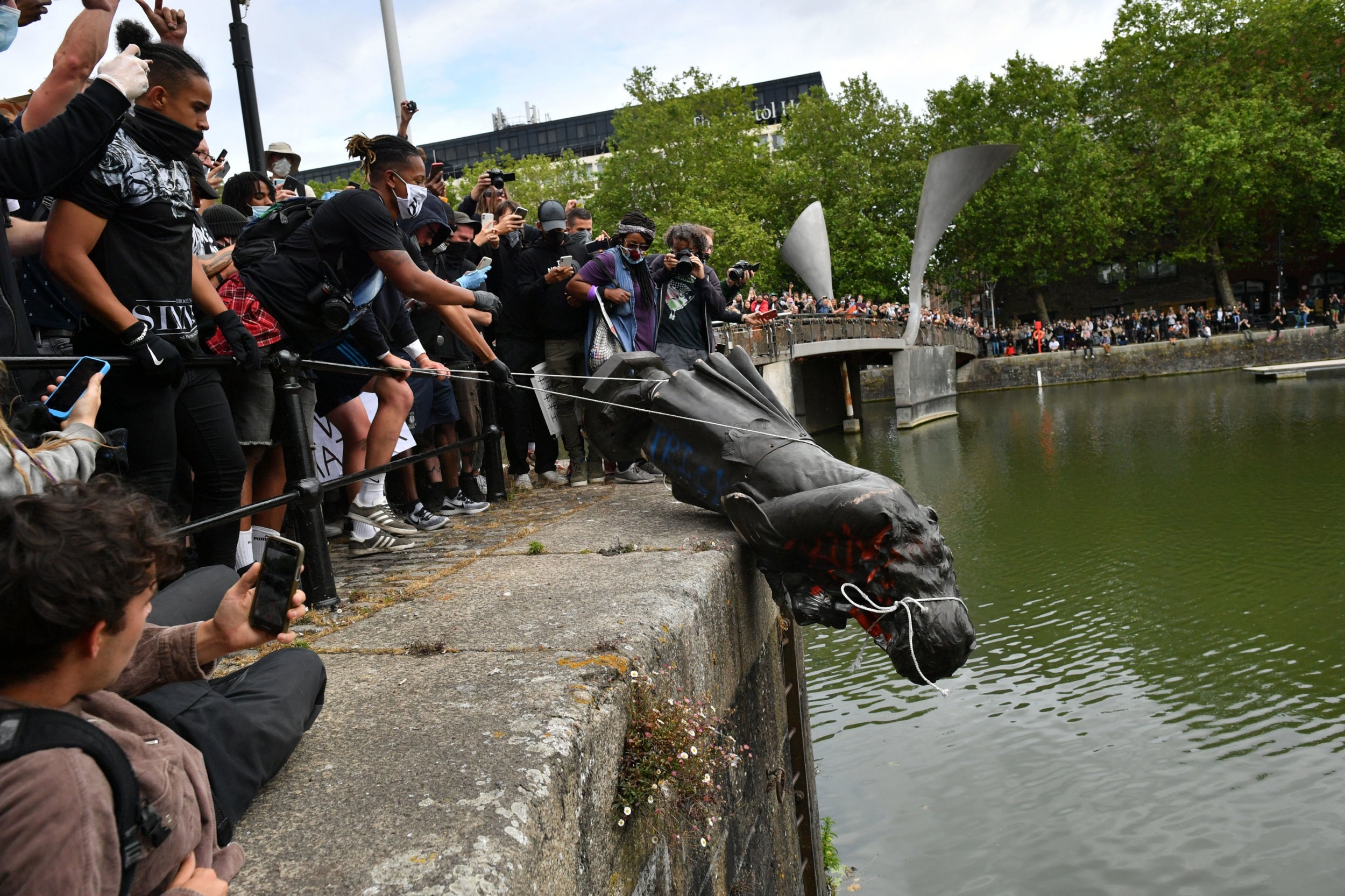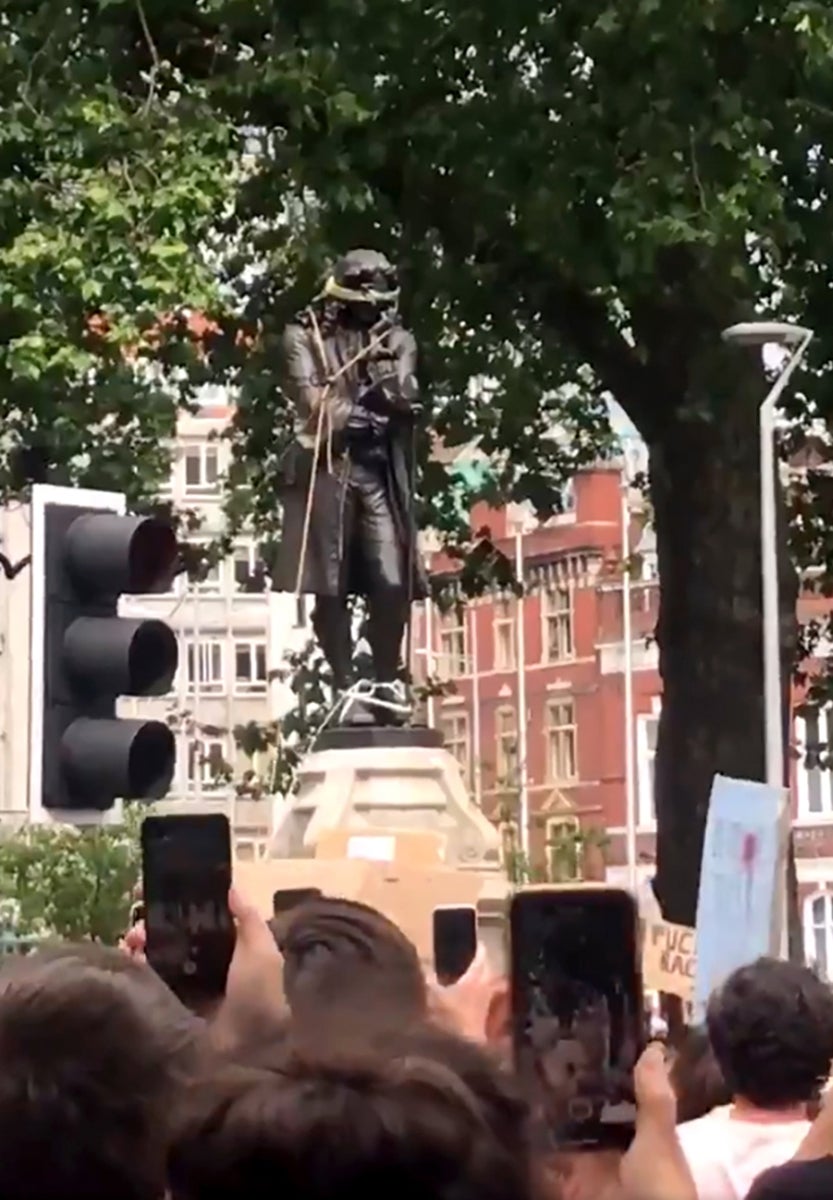Edward Colston: What else in Bristol is named after wealthy slave trader?
Divisive figure’s wealth and charity have seen his name adorned across Bristol
Your support helps us to tell the story
From reproductive rights to climate change to Big Tech, The Independent is on the ground when the story is developing. Whether it's investigating the financials of Elon Musk's pro-Trump PAC or producing our latest documentary, 'The A Word', which shines a light on the American women fighting for reproductive rights, we know how important it is to parse out the facts from the messaging.
At such a critical moment in US history, we need reporters on the ground. Your donation allows us to keep sending journalists to speak to both sides of the story.
The Independent is trusted by Americans across the entire political spectrum. And unlike many other quality news outlets, we choose not to lock Americans out of our reporting and analysis with paywalls. We believe quality journalism should be available to everyone, paid for by those who can afford it.
Your support makes all the difference.Anti-racism protesters have torn down a statue depicting 17th century slave trader Edward Colston and pushed it into Bristol harbour.
The 18-foot bronze memorial had long been a source of local anger, with a recent petition calling for its removal garnering 10,000 signatures.
Amid a wave of global protests calling for an end to systemic racism and police brutality, galvanised by the US police killing of George Floyd, demonstrators on Sunday took matters into their own hands.
Footage showed vast crowds cheering on its toppling, with speakers later delivering powerful addresses from the now-empty plinth, while protesters rolled the statue to Pero’s Bridge – named after an enslaved Bristol resident – and dumped it into the water.
While Avon and Somerset Police are investigating the action, branded “utterly disgraceful” and an example of “sheer vandalism and disorder” by home secretary Priti Patel, there are now growing calls to rethink other homages to figures whose pasts are deeply mired in racism.
In Bristol alone, however, the Colston statue is far from the only tribute to the wealthy Bristol-born merchant, who was made deputy governor of the Royal African Company in 1689 after spending 10 years as a member. He later became a Tory MP.
The company had the monopoly on Britain’s slave trade and by 1689 had transported some 100,000 enslaved Africans to the Americas, branding their chests with the firm’s initials. Cramped conditions – driven by a desire to maximise profits – meant many of those enslaved died while being shipped, with their bodies said to be thrown overboard.
However, Colston’s resulting wealth, charity and influence mean that his name has adorned structures and places across Bristol for years. Here’s a non-exhaustive list of where.
These schools
Colston's School, which was founded by Colston in 1710 as an all-boy's boarding school, still carries his name.
Bristol Live reported that he had failed to get the backing for a school some years previously because of his insistence that only children of Anglican parents should attend, rather than use his money to support the offspring of Dissenters.
Colston's Primary School in 2018 opted to rebrand to Cotham Gardens Primary School after consultation with parents and pupils. Headteacher Alex Bell said at the time that “the parents have been really positive about it and everyone I have spoken to have been very welcoming and positive about the change.”

Colston's Girls School, in Montpelier, continues to bear his name, having been founded with endowments left by Colston. It continues to be overseen partly by the Society of Merchant Venturers.
These streets
Colston Street (x2), Colston Road, Colston Avenue, Colston Hill, Colston Yard, Colston Parade and Colston Dale.
These pubs and restaurants
Colston Yard pub was recently renamed after the small street at its rear, having undergone major refurbishment by the Distinctly Cape Pubs Ltd company.
The Colston Arms, an establishment popular with students and regulars, also shares the slave trader's name.
These buildings
Colston Tower is a high-rise office building in the city centre, built in 1973, which has the slave trader's name adorned at the top of it's 15 floors. It was purchased by Resolution Property in 2017 for £17.5m.
Colston's Almshouses is a grade 1 listed building founded by Colston in 1691. It continues to run, with the The Society of Merchant Venturers as its trustee, as social, supported accommodation for over-60s who are receiving benefits.
This stained glass window
Bristol Cathedral's largest stained glass window commemorates the slave trader. In 2017, the cathedral's dean, Rev David Hoyle, said he was open to considering having the window removed.
This day of the year
For nearly 300 years, The Society of Merchant Venturers and various schools and institutions had held thanksgiving services on 13 November, which was Colston's birthday.

Typically, Colston Day would include a procession from Colston's recently toppled statue and a visit to his crypt. The remembrance service hit a stumbling block in 2017 when St Stephen’s Church refused to host it, Bristol Live reported.
This bun
Colston buns are sweet buns made with dried fruits, which have traditionally been distributed to schoolchildren taking part in Colston Day.
This concert hall – but not for long
Bristol's biggest music venue has been a galvanising point for campaigners seeking to rid city landmarks of Colston's name, and for many years artists such as Massive Attack had refused to play at the venue.
In 2017, amid heavy debate, Bristol Music Trust announced that it would change its name after undergoing major refurbishment, sparking a larger conversation about the current presentation of British history and colonialism. It is due to reopen in 2021.
At the time, UCL's Centre for the Study of the Legacies of British Slave Ownership director told The Guardian that Colston Hall's renaming was “probably the first significant change in the UK”.
“There will be others. It’s a wider process that’s unfolding in the US, and is probably true in France to a degree," said Nicholas Draper. "Anywhere there is the significant imprint of slavery, and maybe the wider imprint of colonialism, then this will happen more and more.
"We’ve had, in the end, a public culture that has been relatively unreflective of the post-colonial moment, and that’s no longer a tenable position.”

Join our commenting forum
Join thought-provoking conversations, follow other Independent readers and see their replies
Comments